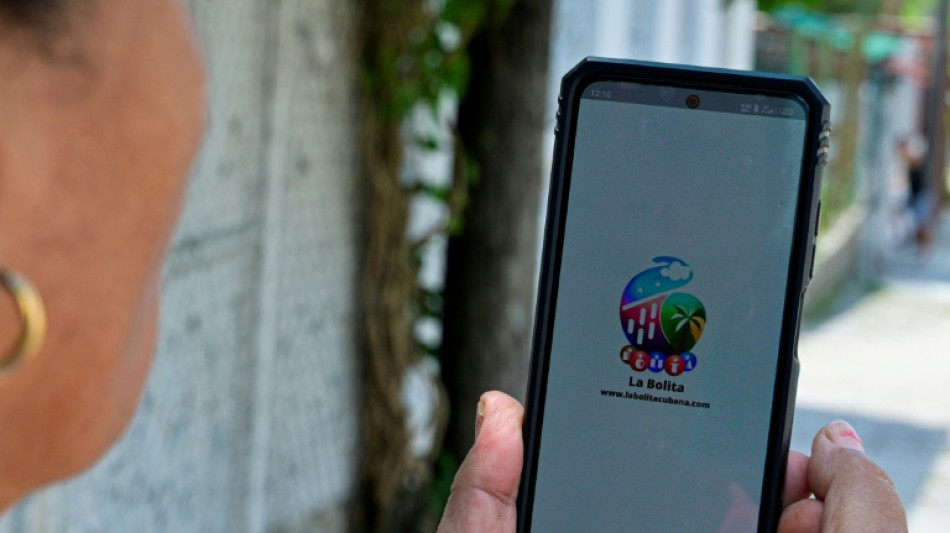
-
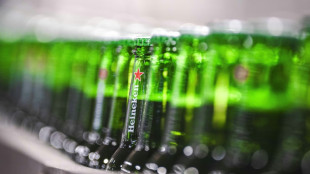 Heineken beer sales dip, tariffs add to uncertainty
Heineken beer sales dip, tariffs add to uncertainty
-
Rehab centre for Russian veterans from Ukraine fills up
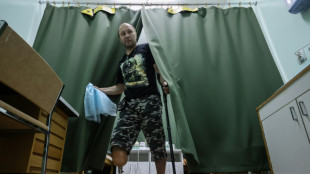
-
 Dutch flower industry grasps thorny pesticide issue
Dutch flower industry grasps thorny pesticide issue
-
Solar boom counters power shortages in Niger

-
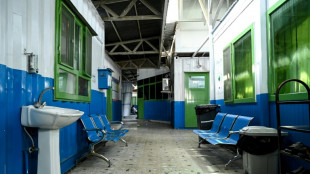 Malnourished children in Afghanistan at 'high risk of dying' without US aid
Malnourished children in Afghanistan at 'high risk of dying' without US aid
-
Skating comeback queen Liu says she can get even better for Olympics

-
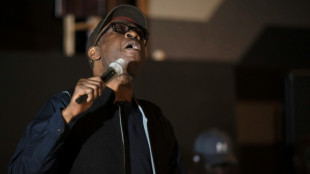 'Let's rock': world music icon Youssou N'Dour back on the road
'Let's rock': world music icon Youssou N'Dour back on the road
-
Mackerel and missiles: EU-UK defence deal snags on fish

-
 Istanbul's Hagia Sophia prepares for next big quake
Istanbul's Hagia Sophia prepares for next big quake
-
'Magician' Chahal casts spell with IPL heroics

-
 WHO countries strike landmark agreement on tackling future pandemics
WHO countries strike landmark agreement on tackling future pandemics
-
Kerr salutes Harvard defiance over Trump after Warriors win

-
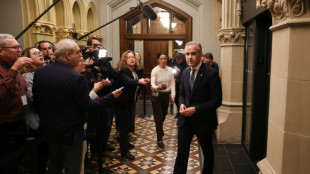 Canada party leaders hold high-stakes debate two weeks from vote
Canada party leaders hold high-stakes debate two weeks from vote
-
As war grinds on, Ukraine's seniors suffer

-
 ASML CEO sees 'increased macro uncertainty' from tariffs
ASML CEO sees 'increased macro uncertainty' from tariffs
-
Pope leaves faithful guessing over Easter appearances

-
 Butler, 'Batman' Curry shine as Warriors down Grizzlies to reach playoffs
Butler, 'Batman' Curry shine as Warriors down Grizzlies to reach playoffs
-
Skating 'Quad God' Malinin ready for Olympic favourite tag

-
 Toppmoeller has ascendant Frankfurt challenging their limits
Toppmoeller has ascendant Frankfurt challenging their limits
-
Cambodia's Chinese casino city bets big on Beijing

-
 Vespa love affair: Indonesians turn vintage scooters electric
Vespa love affair: Indonesians turn vintage scooters electric
-
Europe seeks to break its US tech addiction

-
 Long-abandoned Welsh mine revived as gold prices soar
Long-abandoned Welsh mine revived as gold prices soar
-
UK's top court to rule on how to define a 'woman'

-
 WHO countries reach landmark agreement on tackling future pandemics
WHO countries reach landmark agreement on tackling future pandemics
-
Stocks struggle again as Nvidia chip curb warning pops calm

-
 China's economy beats forecasts ahead of Trump's 'Liberation Day'
China's economy beats forecasts ahead of Trump's 'Liberation Day'
-
China's economy beat forecasts in first quarter ahead of Trump's 'Liberation Day'

-
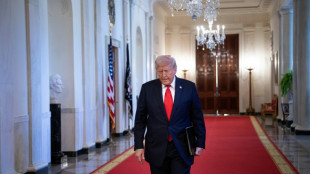 Trump orders critical minerals probe that may bring new tariffs
Trump orders critical minerals probe that may bring new tariffs
-
Onana faces date with destiny as Man Utd chase Lyon win

-
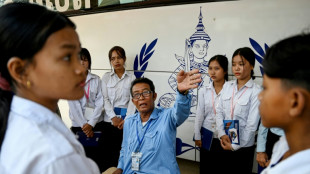 Lessons in horror with Cambodia's Khmer Rouge tribunal
Lessons in horror with Cambodia's Khmer Rouge tribunal
-
Pandemic agreement: key points
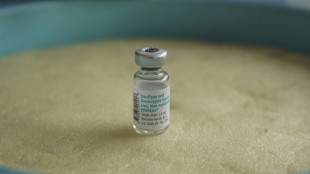
-
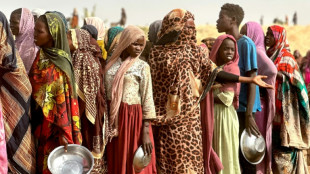 Paramilitaries declare rival government as Sudan war hits two-year mark
Paramilitaries declare rival government as Sudan war hits two-year mark
-
Landmark agreement reached at WHO over tackling future pandemics
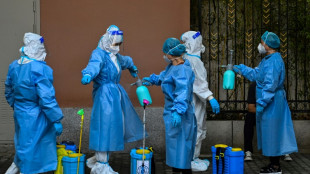
-
 'La bolita,' Cuban lottery offering hope in tough times
'La bolita,' Cuban lottery offering hope in tough times
-
'Toxic beauty': Rise of 'looksmaxxing' influencers

-
 Facebook added 'value' to Instagram, Zuckerberg tells antitrust trial
Facebook added 'value' to Instagram, Zuckerberg tells antitrust trial
-
Helium One Global Ltd Announces Jackson-27 Spud at Galactica Project

-
 Tocvan Core Drilling Extends Main Zone, 70 meters South Returns 7.2 g/t Gold and 80 g/t Silver Over 2.6 meters within 46.9 meters of 0.5 g/t Gold
Tocvan Core Drilling Extends Main Zone, 70 meters South Returns 7.2 g/t Gold and 80 g/t Silver Over 2.6 meters within 46.9 meters of 0.5 g/t Gold
-
Supplement Manufacturing Partner, Inc. Issues Recall on Dorado Nutrition Brand Spermidine Supplement 10mg Vegetable Capsules (Spermidine 3HCL) Due To Undeclared Wheat Allergen

-
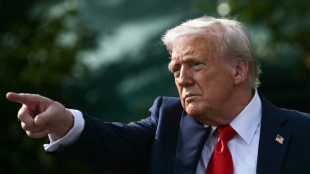 Trump signs order aimed at lowering drug prices
Trump signs order aimed at lowering drug prices
-
Paramilitaries declare rival government as Sudan war enters third year
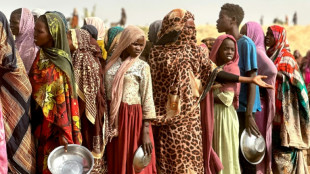
-
 Nvidia expects $5.5 bn hit as US targets chips sent to China
Nvidia expects $5.5 bn hit as US targets chips sent to China
-
Emery targets 'next step' for Aston Villa after Champions League heroics

-
 'Gap too big' for Dortmund after first leg, says Guirassy
'Gap too big' for Dortmund after first leg, says Guirassy
-
Maradona's daughter says doctors could have prevented his death
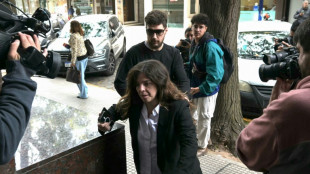
-
 Barcelona 'justified' semi-final spot despite Dortmund loss, says Flick
Barcelona 'justified' semi-final spot despite Dortmund loss, says Flick
-
'We thought the tie was over': Dembele admits PSG switched off against Villa

-
 Wine consumption falls heavily into the red
Wine consumption falls heavily into the red
-
Barca through to Champions League semis despite Guirassy hat-trick


'La bolita,' Cuban lottery offering hope in tough times
Every day, as he has done for 20 years, Carlos makes the rounds collecting bets in central Havana for "la bolita" -- a clandestine national lottery that provides a sliver of hope for Cubans struggling to make ends meet.
Betting has been illegal on the communist island for the past 66 years, but "la bolita" has persisted, and even grown, as Cubans see few other ways out of economic misery.
"People are betting more than ever," said Carlos, who like others interviewed by AFP withheld his real name for fear of getting into trouble.
Carlos, in his 40s, is a "pointer" -- the human interface for Cubans who place bets that start at just a few pesos they hope to multiply with the intervention of Lady Luck.
There are also "collectors" and "bankers" who handle daily bets amounting to millions of Cuban pesos (tens of thousands of dollars) nationally and disburse the winnings neighborhood by neighborhood in a system with no oversight and based entirely on trust.
Carlos points to bets rising in lockstep with a growing hopelessness as Cuba battles its worst economic crisis in 30 years, with shortages of food and medicines, skyrocketing inflation, and daily power outages.
"When you know that your salary isn't enough to make it to the end of the month, the only option left is to bet on luck," he told AFP.
The average salary in Cuba hovers around $42 per month.
As there is no official draw, "la bolita" is decided by twice-daily lottery results from Florida, Georgia or New York.
To find out if they won, Cubans follow the lotteries on the internet, via mobile apps, on Facebook, WhatsApp or on X groups.
- 'Luck can change your life' -
The arrival of mobile internet in Cuba in 2018 injected new life into the lottery that has been played here since the 19th century -- an adaptation of gambling games introduced by Chinese and Italian immigrants.
It is played with numbers from 1 to 100, each with an association such as a horse for 1 or a butterfly for 2.
Players often rely on dreams or experiences to choose their numbers and in the time of Fidel Castro, anyone lucky enough to set eyes on the revolutionary leader -- nicknamed "The Horse" -- would elect the number 1 as part of their grid.
Islander Rogelio, 47, told AFP he won the equivalent of $2,250 in two weeks recently -- a sum equivalent to 61 times his monthly salary as a civil servant.
"Good luck can change your life," he said.
But Ruben, 32, said he had not won anything in a while.
"People no longer say good morning. They ask you which numbers came out," he said.
Carlos concedes there is a problem of people becoming deeply indebted because of "la bolita."
He himself makes a living from a 10 percent cut on each day's takings, but is forced to ply his trade in obscurity.
Castro banned gambling as soon as he took power in 1959, and the country's penal code prescribes a penalty of three years in prison and a fine of 300,000 pesos (about $2,500) for anyone who "performs activities as a banker, collector ... or promoter of illicit games."
It was not always like this.
In the 1940s and 1950s, gambling had its golden age in Cuba, when Havana, with its casinos, betting houses, and game rooms linked to the American mafia, became the most important gaming center in the Caribbean.
Castro's revolution ended the dream of gangsters Meyer Lansky and Lucky Luciano, who had enjoyed close ties with dictator Fulgencio Batista, of building a chain of hotel-casinos on Havana's Malecon waterfront, American journalist TAJ English wrote in his 2007 bestseller "Havana Nocturne."
Las Vegas took over instead, and became one of the largest gaming centers in the world.
D.Moore--AMWN